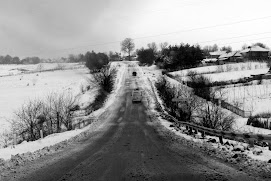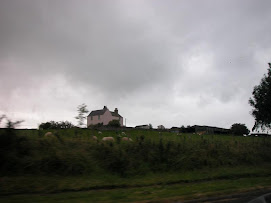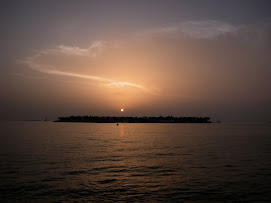Several months ago I was asked to write an article about a person who came down with cancer. Vladimir Ocazov was a vibrant man in the prime of life. But when he fell ill, little real help was available. His family was shocked, and his wife contacted me from Athens asking to expose the difficulties people suffering from cancer face in Greece.
I did as I promised, but in the end Greek newspaper with which I had a verbal agreement refused to publish the article. “Sorry, we have got lots of political issues”, I was told. Those who are interested, though, can read it among the articles posted below.
Today, I am returning to the same story. Without the proper help, Vladimir’s health has deteriorated. The situation has got very complicated—more so that the Ocazov family and I could have imagined several months ago.
From my earliest discussions with members of the family, I began to understand what it means to cross the border into a land where no-one can feel optimistic anymore. Even if you have a chance to recover from cancer, very often people around you do not believe it.
It is incredibly harsh to see that nice family, which I have met several years ago in Athens, in so much trouble. I always thought Greece was a perfect environment: warm and friendly, a place where you would never be left without attention and care. Unfortunately, it turned very differently for my friends, who are still struggling to discover the cause of cancer and the best way to defeat it.
The research for my article about gastric cancer in Greece proved difficult because little hard information is available. Neither the WHO nor other European organisations could tell me how severe the incidence of that kind of cancer is in Greece.
“The country does not have a national cancer register,” Manolis Paraskevas, the president of Kifisia branch of the Greek Anticancer Company, told me.
Does that mean that, except for the total number of deaths, the country keeps little information about cancer—such as whether the disease crops up more in certain areas or certain industries?
No officials at the Greek Ministry of Health were willing to comment. To discover why there is no national cancer registry in Greece, as there is in many other European countries, appeared an extremely difficult task.
Paris Kosmidis, ex-president of the European Anticancer organisation, also had no answer. He told me had tried to raise the issue many years ago. But all Greek governments since then have ignored the importance of creating such a database.
“Without a national cancer registry it is impossible to understand how big the problem is”, Dr Kosmidis told me.
With no firm information, the Ocazov family can only guess what happened to Vladimir. The cause might be the glue he inhaled at the shoe factory where he worked for four years.
“Who cares about us?” his wife, Katerina, asked. “One hand washes another.” Most likely they will never find out what caused Vladimir's illness.
The life of cancer patients in Greece is very difficult. Not only because they cannot find out what dangerous factors affected their health, but also because they cannot get appropriate treatment. And in some cases, the illness gets worse because of the incompetence and ignorance of doctors.
“Before you reach God you will be swallowed by Saints”, someone once told me. This expression describes Vladimir’s situation very well. It took him a great deal of time and effort to find out why he was feeling more and more tired. Since he first went to try to find out what was wrong with him, one doctor after another failed to take his condition seriously.
They just guessed as to what might be wrong. One doctor told Vladimir that he probably felt tired because he couldn’t adjust to the Greek climate. Another said he probably had a virus.
Several times, doctors rejected the Ocazovs’ request that an MRI—a magnetic resonance imaging scan—be done. And when they finally managed to persuade a doctor to do a least a CT scan, the technicians neglected to scan Vladimir’s stomach. “Everything is in order”, the Ocazovs were told.
But everything was not in order.
One morning soon afterward, Vladimir passed out. He was taken to the hospital, where a second CT scan showed the problem—he had cancer. His stomach was removed.
Unfortunately, the first operation was not performed correctly, and several other surgeries followed. Among them was one operation that was completely unexpected: an IV needle broke in Vladimir’s vein and had to be removed without anaesthetic because he was so weak. It was a battle for his life, and the doctor did a fine job correcting somebody else’s mistake.
As time wore on, the list of the hospitals Vladimir had visited for treatment grew long: Evangelismos, Ipokratous, Metropolitan, Erikos Dinan, Metaxa, Agia Olga. Katerina barely managed to cover the bills. She had to borrow money from the bank several times and ask relatives for help, as well.
 Had doctors detected the cancer earlier, and had the first surgery been performed with more care, Vladimir would no doubt be in much better condition now. Instead, his health has declined badly. The oncologists stopped helping him several months ago, and Vladimir’s desire to live has been almost broken: too much pain, too much discouragement.
Had doctors detected the cancer earlier, and had the first surgery been performed with more care, Vladimir would no doubt be in much better condition now. Instead, his health has declined badly. The oncologists stopped helping him several months ago, and Vladimir’s desire to live has been almost broken: too much pain, too much discouragement.The problem is broader than just the doctors. People like Vladimir get tangled in an unfair fight for their lives also because the Greek National Health Service does not have enough programmes to combat cancer, conduct research and support those already affected.
There are very few charity organisations in Greece that are able to invest in such programmes. Political and economic chaos in the country leaves little hope that things will get better soon.
Shouldn't there be an end to the indifference and ignorance that the cancer patients face today?

.jpg)












